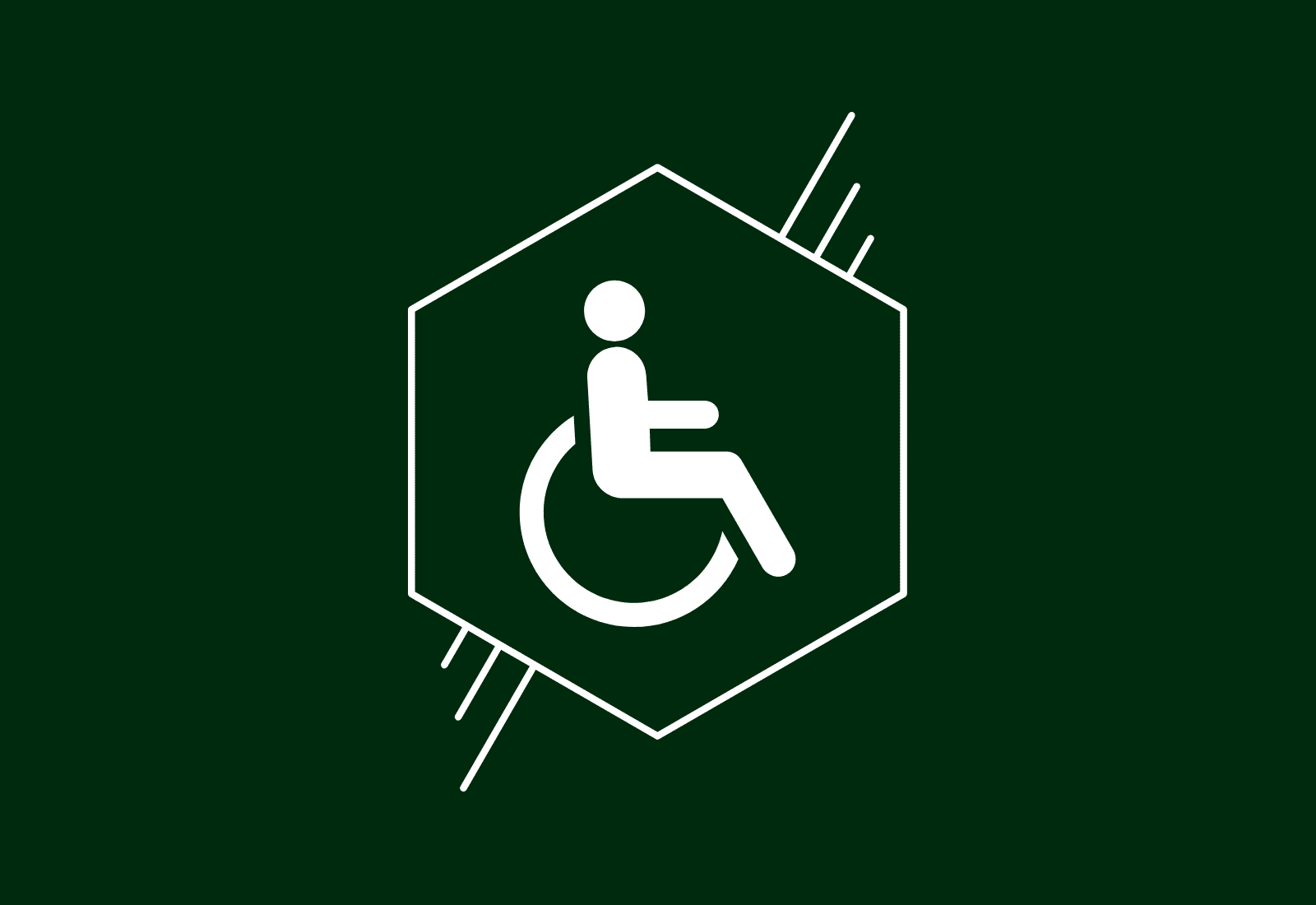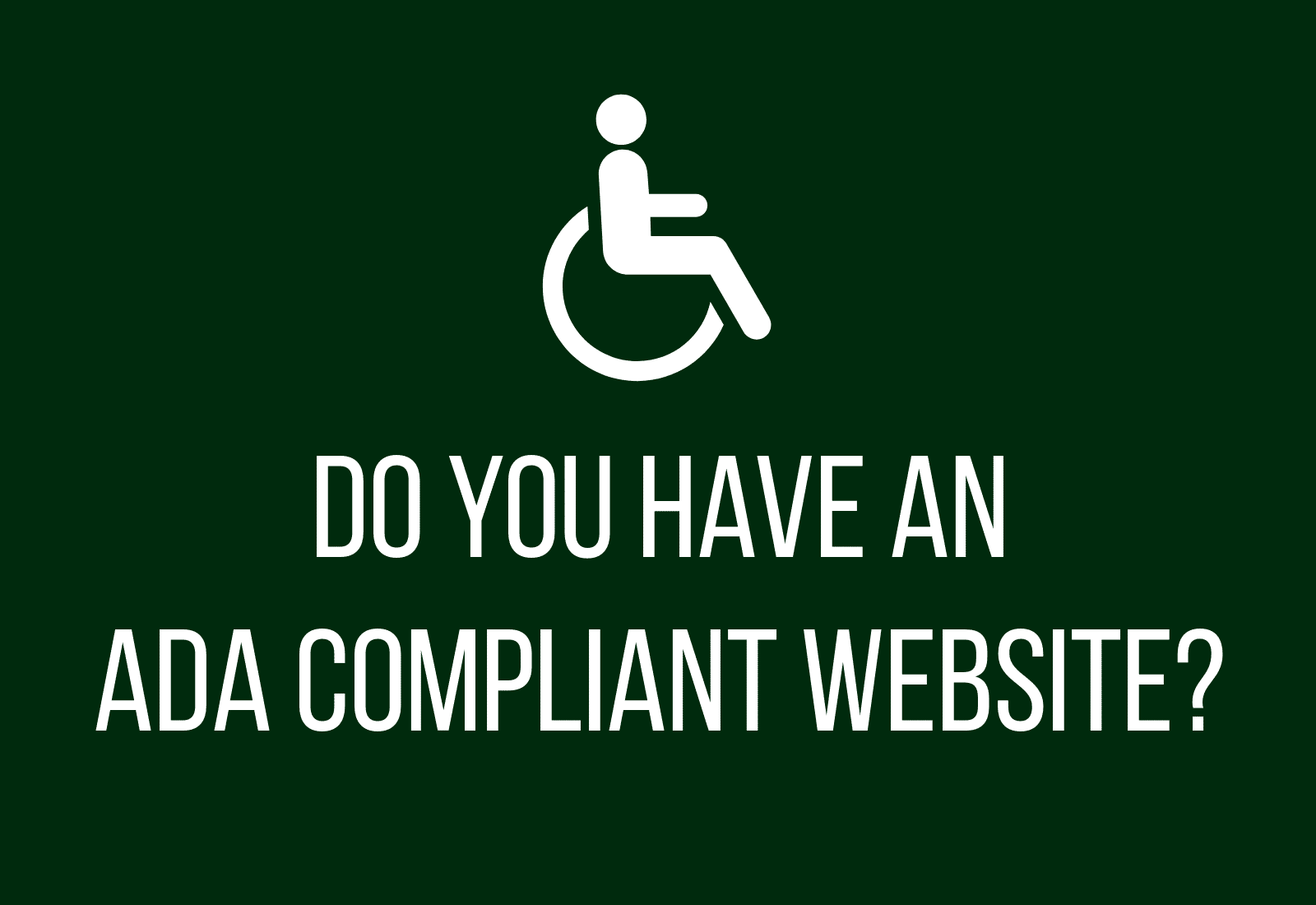It’s 2023…do you know where your website is?
Here are some tips for finding out if you have an ADA compliant website (and whether you should worry about it).
You may have heard of small business owners getting threatening emails calling them out for not having an ADA compliant website. Maybe you’ve gotten one yourself.
Like most (normal) people, you don’t want to be fined or sued for discrimination, so you scramble to bring your website into compliance as fast as you can, showering the email sender with cash and thank yous.
There’s only one problem: you don’t have to worry about having an ADA compliant website.
Don’t get me wrong—failure to comply with the Americans With Disabilities Act (ADA) is a potential problem, but it’s not the Big Bad Wolf you’ve been led to believe.
Fear-mongering is a thing in the web world and we’re sick of it. We’ve heard way too many stories about business owners being threatened over things that weren’t a big deal. (Some of these are outright scams.)
So in this article, we wanted to address this current buzzword to help you understand where you (and your website) stand.

What Is ADA Compliance?
Title III of the ADA prohibits “discrimination on the basis of disability in places of public accommodation.”
When the law was first passed in 1990 (far too late, if you ask me), most people thought of “public accommodations” as a physical location, such as a storefront or restaurant. But 30+ years ago (excuse me while I cry into my pillow), no one was considering how the ADA might apply to something like websites (least of all the Department of Justice).
As a result, there are no legal requirements regarding website accessibility.
“But wait a minute, the ADA requires that all public places are accessible to people with disabilities. Aren’t websites open to the public?”
While this seems cut-and-dry, there is a surprising amount of debate the ADA and website compliance. Some courts say websites are bound to it, some say they’re not, others say it depends on the website.

Do I Have To Worry About This?
As of this publication (April 2023), ADA compliant websites are not mandatory and no governmental agency is going to come and seize your cash registers in retribution.
That being said, it is possible that one of your customers could slap you with a lawsuit (there’s no law against that, either).
One of the best-known examples of this is the lawsuit brought against Winn-Dixie by Juan Carlos Gil, who is blind. Because Winn-Dixie used a Flash site, screen readers weren’t able to read the screen, so Gil was unable to order medications, view sales, or download reward cards.
Although courts initially filed in favor of Gil, another Judge reversed the decision. So, even though Winn-Dixie eventually won the case, they still had to fight a long battle in court (and pay all those lawyers).
“So…I do have to worry about it?”
Probably not.
First of all, Winn-Dixie is a huge company with a lot more visibility than you; this makes them low-hanging fruit.
Second of all, if you have a fully optimized website, you probably already have an ADA compliant website.

Say Hello, and Let's Get To Work Together
What Does An ADA Compliant Website Look Like?
While there are no legal requirements regarding ADA compliant websites, certain accessibility standards have been adopted by web developers across the globe.
The Web Content Accessibility Guidelines (WCAG) help website owners ensure that their sites are equally accessible, regardless of disability.
The WCAG covers four main areas:
- Users’ ability to perceive information on the site;
- Users’ ability to operate the site;
- Users’ ability to understand the site; and
- Website’s ability to adapt to new technologies.
Complying with the guidelines means including features such as:
- Video captions,
- Audio transcription,
- High contrast colors for graphics and text, and
- Intuitive navigation.
Sites can even be rated on how compliant they are. Level A refers to a site with “minimal compliance,” level AA has “acceptable compliance,” and level AAA is “optimal compliance.”

Is My Website ADA Compliant?
The spirit behind ADA compliant websites is making web content accessible. And chances are, if you follow good SEO practices, your website already does that.
Things that improve your accessibility include:
- Alt text for images, videos, and audio files
- Logical hierarchy for headers
- Organized site layout
- Descriptive anchor text for links
- Using common web fonts
- Keyboard navigation
These features (and many others) improve your site’s overall user experience (UX), which in turn improves your SEO and your ADA compliance. For a more in-depth analysis, companies such as AccessiBe and UserWay offer easy accessibility solutions.
Ultimately, the question you need to ask yourself isn’t whether your website is ADA compliant, but whether your business is.
The heart of the ADA is about making reasonable accommodations for people with disabilities. If a poorly designed website is the only way they can do that, your website is pretty non-compliant.
But if you’ve taken the time to think about your clientele and you make all reasonable efforts to get them what they need (including helping them over the phone, if necessary), then congratulations! You have an ADA compliant website.
Conclusion
In short, there’s actually no such thing (legally) as an ADA compliant website, so you don’t have to be scared of those threatening letters.
But that doesn’t mean that ADA compliance isn’t important.
All people—regardless of their ability—should be valued equally and given equitable treatment. However, this doesn’t (necessarily) mean you have to stop everything and rebuild your website from the ground up.
Keep following good SEO practices, and your ADA worries take care of themselves.
Clarity Creative Group is a digital marketing company located in beautiful Orlando, Florida. This article made me realize that math is a liar because 30 years ago was actually 1973.







